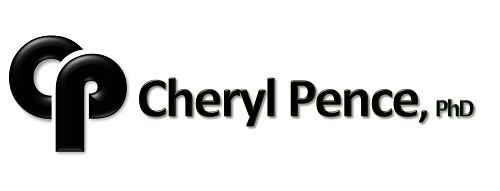
Making a Great First Impression
A resume and cover letter will get you an interview, but the interview can get you the job. Therefore, proper preparation for a job interview can be the key to making a great first impression. If you are not looking for a job, the same tips can apply to going on a big date or joining a new activity group.
Preparation
Employers look for a few key things from prospective candidates when deciding whether or not to hire them. In preparing for your interview, you may want to consider some of the following areas:
Attitude
- Be yourself. A positive, genuine, and sincere interaction can go a long way in the interview process.
- Show your passion. Let them see your enthusiasm and confidence (not arrogance) for the field. This is not a business negotiation, so stoicism doesn’t pay.
- Let them see that you have done your research. When they know you have spent the time to learn more about their organization, they are able to see your interest.
Image and Appearance
- Dress for success. Observe the environment and dress appropriately. Although many job interviews are conducted in business suits, you may find that a collared shirt is suitable for some organizations. Call ahead and ask if you are not sure.
- Avoid distractions. Facial piercings, obvious tattoos, large or noisy jewelry, or even bags under your eyes can be distractions. Minimize any distractions so the interviewer can focus on you.
- Good grooming and hygiene. Since this is your first impression, it may be a good idea to maintain a conservative hairstyle, have trimmed and cleaned fingernails, fresh breath, and little to no perfume or cologne.
Communication
- Prepare for questions. The more you prepare with specific examples from your past jobs, the better prepared you will be to articulate the points you want the employer to know about you. A list of potential interview questions may guide you. Additionally, the University of Florida Career Resource Center (UF CRC) offers some useful tips to answering some of the typical interview questions. Your research about the organization or interviewer may also uncover questions they might like to typically ask, so be sure to prepare for them as well.
- Speak clearly and concisely. Use professional language to convey how you fit the job. Avoid informal language (e.g., like, you know) or slang. Be concise with your answers and do not ramble.
- Be honest. Never lie in a job interview. It can come back to hurt you even if you get the job.
- Focus on the positives. Even if you did not like your previous boss or co-workers, stick to the positives of your experiences. Also, don’t discuss any personal, domestic, or financial problems.
- Emphasize your strengths. If they want to know your weaknesses, they will ask. However, share examples that highlight areas where you may be successful in their organization.
- Monitor your non-verbals. Although it is easy to be nervous, remember to relax, smile, make eye contact, maintain good posture, avoid fidgeting, and limit negative facial expressions or bad habits. If you are unsure of them, use the mock interview to practice and record it to observe how you act.
Job Qualifications
- Prepare a 60-second commercial. Interestingly, job qualifications are not the most important aspect to an interviewer because your resume got you in the door based on the qualifications listed. However, it is important that you can articulately convey to the interviewer in a very brief way why you are interested in their organization. Practice a brief “commercial” that highlights your qualifications, why you want the job, and how you can benefit their firm.
- Bring extra copies of necessary documents. Have extra copies of your resume as well as anything that may be required for the job such as certificates, licenses, transcripts, test scores, etc. Also, bring a copy of your references. They may not have been required earlier; however, if the interviewer would like to move you to the next stage, they will ask for these.
The Interview
When you are invited for a formal interview with an organization, you will be judged on your answer to a series of questions, your ability to hold a discussion with the interviewer(s), and your overall interaction with the organization. Therefore, it can be helpful to prepare ahead of time and make a great first impression.
- Arrive about 10 minutes early and address the receptionist warmly; anyone you come into contact with may provide their impressions of you to the interviewer. Also, it is helpful to understand how you handle stress. If you require extra time to calm down before your interview, you may wish to arrive even earlier and find a quiet place in the building or your car to calm your nerves.
- During the interview, answer their questions and stay focused on what you can do for the employer, not what they can do for you. Talk about yourself in reference to them.
- Use specific examples to illustrate your strengths.
Often, individuals are unaware of their presentation style and other non-verbal behaviors. A practice or mock interview provides the opportunity to complete an interview and receive helpful feedback. You can learn more about mock interviews in a separate article to help guide your practice so you can become more prepared during the big interview.
Managing Illegal Questions
Legal questions are related to the job you are seeking such as experience, education, schedule availability, and your ability to perform the work. Illegal topics include those protected by the discrimination laws or irrelevant to the work including age, race, gender, sexual orientation, religious preferences, personal characteristics, children, pregnancy, marital status, family leave plans, disabilities, or health issues.
There are some circumstances where typically illegal questions may be acceptable.
- Age: in an industry where a minimum age requirement must be met, an employer can ask about age.
- Disability: job tasks or special accommodations can be discussed related to a disability and the candidate’s ability to perform the duties.
- Citizenship: when required by law, US citizenship or legal resident status may be obtained.
- Photos: may be required after hiring for identification purposes. They should not be required before hiring.
- Arrests or convictions: an employer can inquire about convictions of specific crimes related to the qualifications for the job.
Although human resource professionals are trained to not ask illegal questions, there are many times that an organization will defer the interviews to a manager or other staff member not necessarily trained in employment law. Many times the questions are well-intended so choosing not to answer can be tricky. You have three options for answering illegal questions:
- Answer the question
- Refuse to answer the question
- Examine the intent and respond to that
Your Turn to Ask Questions
After they ask their questions, they may give you the opportunity to ask them questions. It is a good idea to have some prepared; this is a great opportunity to show you have done your research and you are interested in their organization! The UF CRC handout also suggests questions you may want to ask an employer. The article on informational interviews has additional suggestions as well.
Reflect
- What insights did you gain from practicing your interview skills or completing the formal interview?
- What could you do better next time?
- How are you taking action today to improve your interview skills?
